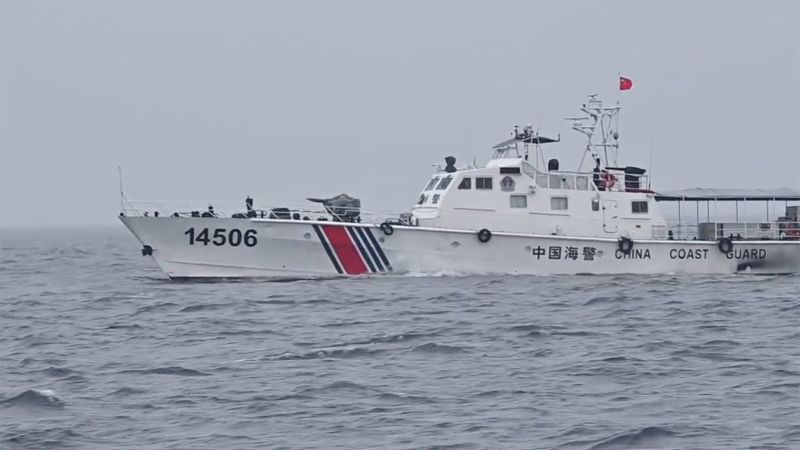CNN
—
House Foreign Affairs Committee Chairman Michael McCaul and a bipartisan delegation of lawmakers arrived in Taiwan on Sunday following the election of the island’s new president and after days of Chinese military drills.
The arrival of six lawmakers come just days after the inauguration of Lai Ching-te, who has been rebuked as a “dangerous separatist” by Beijing and whose election triggered the largest military exercises around Taiwan that the Chinese have launched in more than a year. China’s ruling Communist Party says the self-ruling democracy is part of its territory, despite never having controlled it, and has vowed to take the island by force if necessary.
“As Putin wages war in Ukraine and Israel fights a multi-front war against Iran-backed proxies like Hamas, Chairman Xi is watching to see if America continues to support its partners and friends,” McCaul said in a statement, referring to Chinese leader Xi Jinping. “Taiwan is a thriving democracy. The US will continue to stand by our steadfast partner and work to maintain the status quo across the Taiwan Strait. I look forward to meeting with Taiwan officials to better understand what America can do to preserve peace in Asia and build upon our shared democratic values.”
The delegation will discuss with Taiwanese authorities “regional security, trade and investment to explore new areas of collaboration,” according to a news release from the House Foreign Affairs Committee.
Beijing said the two days of Chinese joint military exercises around Taiwan and in the Taiwan Strait were initiated to “test the ability to jointly seize power, launch joint attacks and occupy key areas.” The drills involved dozens of fighter jets carrying live ammunition conducting mock strikes against “high value military targets” of the “enemy,” CNN reported Thursday.
US officials condemned the drills, with the State Department urging the Chinese to “act with restraint.”
Two years ago, former House Speaker Nancy Pelosi visited the island, marking the first time a US House speaker had traveled to Taiwan in 25 years. Her visit was met with days of large-scale military drills and warnings of a “severe impact” on US-China relations from the Chinese government.
In April 2023, then-House Speaker Kevin McCarthy similarly defied threats from China, presenting a united front with then-President Tsai Ing-wen in a California meeting. Though officials tried to downplay the meeting at the time to avoid provoking Beijing — which nevertheless condemned the talks and pledged “strong and resolute measures” — the political significance of the Taiwanese president’s high-level audience on US soil was clear.
During a three-day trip to China last month, Secretary of State Antony Blinken met with Chinese leader Xi Jinping, who said the US and China should be “partners rather than adversaries.” The two countries have sought stabilization and increased communication in their tumultuous relationship, which has been further complicated by intimidatory drills and threats to Taiwan.








:max_bytes(150000):strip_icc()/roundup-writereditor-loved-deals-tout-f5de51f85de145b2b1eb99cdb7b6cb84.jpg)


